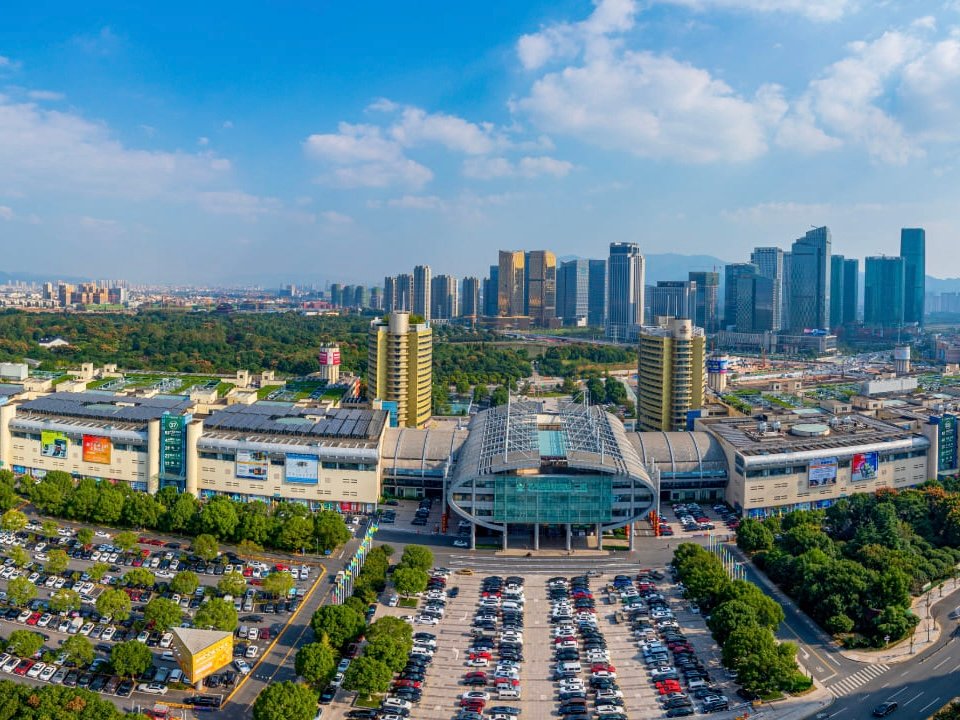Yiwu, a city in Zhejiang Province, China, has undergone a remarkable transformation from a modest agricultural town into the world’s largest wholesale market for small commodities. Its story is a testament to China’s broader economic rise and its pivotal role in the global supply chain. This article explores Yiwu’s history, development, and current status, showing why it has become the go-to destination for wholesale buyers worldwide.
Origins: From Barter Trade to a Thriving Market Economy
Yiwu’s journey began in the 1970s when it was primarily a rural town engaged in barter trade. Local farmers and villagers exchanged goods in open-air markets, often using informal agreements rather than official contracts. The early 1980s brought China’s “Reform and Opening Up” policy, which encouraged private business initiatives and market-driven economic activity.
In 1982, the first formal marketplace was established in Yiwu, attracting traders from neighboring regions. The market focused on inexpensive small commodities—items like buttons, hair accessories, and toys—which could be produced locally and sold in bulk. Over time, Yiwu evolved from a local trading hub into an internationally recognized marketplace.
Strategic Government Support and Infrastructure Development
The Chinese government played a critical role in Yiwu’s rise. Recognizing the city’s potential to stimulate trade and foreign investment, authorities invested in transportation infrastructure, logistics, and market facilities. The development of roads, rail links, and airport connections allowed goods to move efficiently from Yiwu to ports and, ultimately, international markets.
Additionally, Yiwu’s local government introduced business-friendly policies, such as tax incentives and streamlined customs processes, which encouraged foreign buyers to visit the city and engage in large-scale purchasing.
Yiwu International Trade City: The Heart of Global Commerce
At the core of Yiwu’s success is the Yiwu International Trade City, often referred to as the “world’s largest small commodities market.” Covering over 4 million square meters, it houses more than 75,000 booths offering millions of products across multiple categories: toys, textiles, electronics, jewelry, home goods, and more.
The market operates like a small city within a city, with restaurants, hotels, and logistics services available on-site. Buyers from every corner of the globe—Africa, Europe, the Americas, and Asia—visit Yiwu, often making multiple trips per year to source inventory. Its scale and diversity make it an unparalleled platform for businesses seeking cost-effective products.
Embracing Digital Transformation
In the past decade, Yiwu has embraced digitalization to expand its global reach. Platforms allow international buyers to browse products and place orders online, replicating the experience of walking through the market in person. The Yiwu Global Digital Trade Center integrates digital payment solutions, live-streamed supplier demonstrations, and logistics tracking tools, making it easier for businesses worldwide to engage with Yiwu suppliers.
This digital pivot has been particularly significant during global disruptions, such as the COVID-19 pandemic and shipping delays, allowing Yiwu to maintain its status as a reliable sourcing hub.
Navigating Global Trade Challenges
Despite its success, Yiwu’s exporters face challenges. Trade tensions between China and other countries, particularly the United States, have prompted suppliers to diversify their markets. Many now target emerging economies in Africa, Latin America, and Southeast Asia, capitalizing on growing demand for affordable consumer goods.
Rising labor costs, environmental regulations, and fluctuating shipping fees are additional considerations. Suppliers and buyers alike must adapt by negotiating bulk orders, optimizing logistics, and leveraging technology to streamline supply chains.
The Global Influence of Yiwu Products
Yiwu’s small commodities may seem modest, but their global impact is enormous. Products sourced from Yiwu appear in shops, markets, and e-commerce platforms worldwide. The city has also become a hub for trend-driven goods—items like LED lights, DIY crafts, and novelty gadgets often originate in Yiwu before hitting international shelves.
For many small businesses and dollar stores, Yiwu serves as the backbone of inventory sourcing, offering affordable, high-volume products that cater to diverse markets. This accessibility has helped countless entrepreneurs launch and grow businesses around the globe.
Conclusion: Yiwu as a Symbol of China’s Global Trade Power
Yiwu’s evolution from a small agricultural town to a global supply hub exemplifies China’s dynamic economic transformation. Strategic government support, massive infrastructure development, and an embrace of digital commerce have positioned Yiwu at the forefront of international trade.
For businesses looking to source competitively priced products with diverse options, Yiwu remains a central destination. IIts adaptability and flexibility suggest that the city will continue to play a vital role in global commerce for decades to come.



